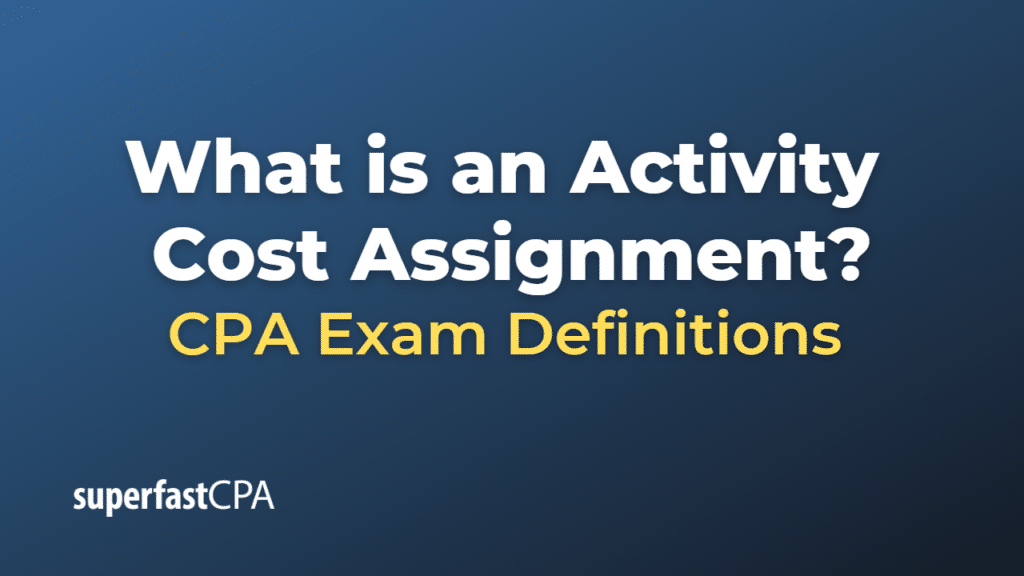Activity Cost Assignment
Activity Cost Assignment is a process in activity-based costing (ABC) where the costs associated with specific activities are allocated to the products, services, or customers that utilize those activities. The main objective of activity cost assignment is to provide a more accurate reflection of the true cost of producing a product or delivering a service, allowing businesses to make informed decisions about pricing, resource allocation, and process improvement.
In this method, costs are assigned based on the resources consumed by specific activities, rather than being allocated based on traditional cost drivers like labor or machine hours. This enables a more accurate analysis of cost behavior and helps identify inefficiencies or areas where resources could be better utilized.
Example of an Activity Cost Assignment
Let’s consider a simple example of a bakery that produces two types of pastries: croissants and muffins. The bakery has identified three main activities involved in the production process: mixing ingredients, baking, and packaging. The following information is available:
- Mixing ingredients:
- Total cost: $1,000
- Cost driver: Number of batches
- 100 batches of croissants and 50 batches of muffins
- Baking:
- Total cost: $1,500
- Cost driver: Baking hours
- 200 hours spent baking croissants and 100 hours spent baking muffins
- Packaging:
- Total cost: $500
- Cost driver: Number of packages
- 1,000 packages of croissants and 500 packages of muffins
Using activity cost assignment, we will allocate the costs to each product as follows:
- Mixing ingredients:
- Cost per batch: $1,000 / (100 batches of croissants + 50 batches of muffins) = $10 per batch
- Cost assigned to croissants: $10 x 100 batches = $1,000
- Cost assigned to muffins: $10 x 50 batches = $500
- Baking:
- Cost per baking hour: $1,500 / (200 hours for croissants + 100 hours for muffins) = $5 per hour
- Cost assigned to croissants: $5 x 200 hours = $1,000
- Cost assigned to muffins: $5 x 100 hours = $500
- Packaging:
- Cost per package: $500 / (1,000 packages of croissants + 500 packages of muffins) = $0.33 per package
- Cost assigned to croissants: $0.33 x 1,000 packages = $330
- Cost assigned to muffins: $0.33 x 500 packages = $165
Total cost assigned to croissants: $1,000 (mixing) + $1,000 (baking) + $330 (packaging) = $2,330 Total cost assigned to muffins: $500 (mixing) + $500 (baking) + $165 (packaging) = $1,165
By using activity cost assignment, the bakery can determine the cost of producing croissants and muffins more accurately, allowing for better decision-making on pricing, resource allocation, and process improvement.













